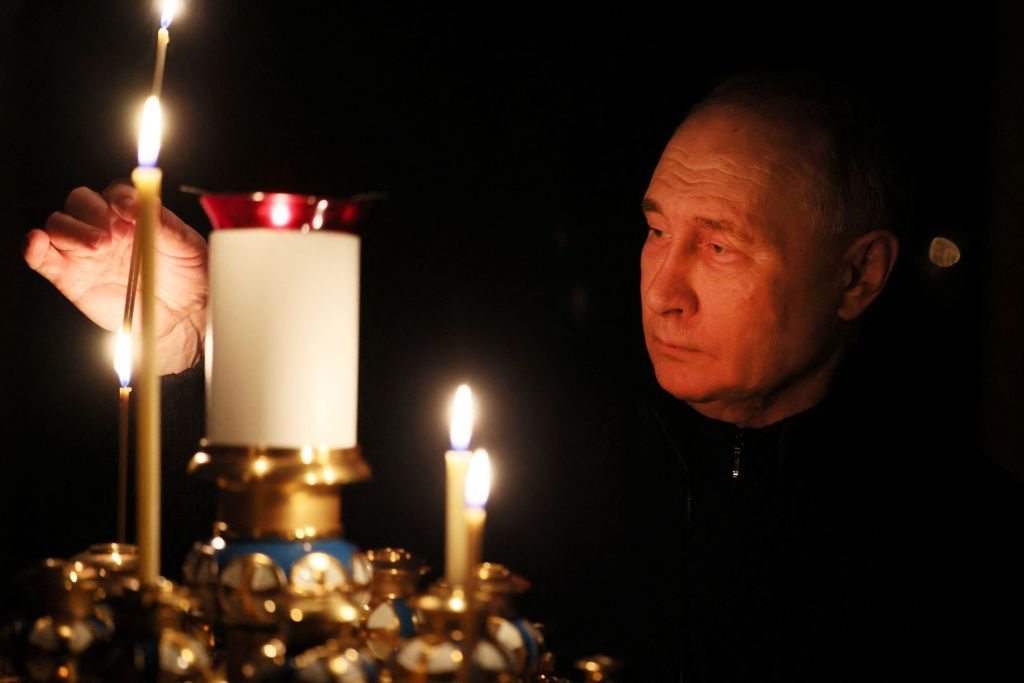Lukashenko claims Moscow attackers tried to flee to Belarus, undermines Putin's narrative

Belarusian dictator Alexander Lukashenko said that the suspects who carried out the terrorist attack in Moscow on March 22 initially tried to flee to Belarus, state-run news outlet Belta reported on March 26.
Lukashenko's claim undermines the Kremlin narrative that Ukraine was involved in the attack. Russian leader Vladimir Putin repeated his claim on March 25 that the terrorists were caught while fleeing to the border with Ukraine, and questioned "who was waiting for them there."
Several gunmen opened fire at the Crocus City Hall in Krasnogorsk, a Moscow suburb, during a concert on the evening of March 22, killing 139 people. Islamic State claimed responsibility for the attack and the White House said there was no indication that Ukraine was behind it.
Lukashenko claimed that Belarus heavily increased security at the border with Russia immediately after the attack and the terrorists "understood that it was impossible to enter Belarus" through Russia's Bryansk Oblast.
After seeing the security at the border, they changed their plans and "turned away and went to the section of the Ukrainian-Russian border," Lukashenko claimed.
Bryansk Oblast borders Homiel and Mahiliou oblasts in Belarus and Chernihiv and Sumy oblasts in Ukraine.
Federal Security Service (FSB) Head Alexander Bortnikov doubled down on the narrative that the attackers were headed to Ukraine on March 26, claiming that the terrorists were heading to Ukraine, where they would have been "greeted as heroes."
Bortnikov alleged, without providing evidence, that the attack had been planned by Ukraine, the U.S., and the U.K.
French President Emmanuel Macron said on March 25 that Islamic State recently made "several attempts" at attacks on French soil.
It would be "cynical and counterproductive for Russia itself and for the security of its citizens to use this context to try and turn it against Ukraine," Macron said.














